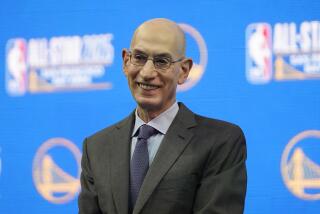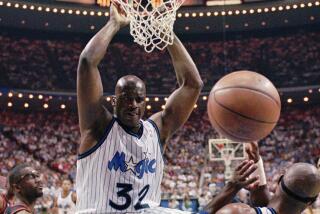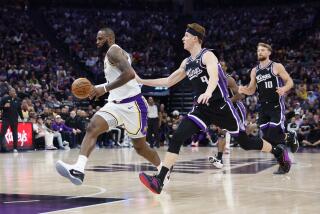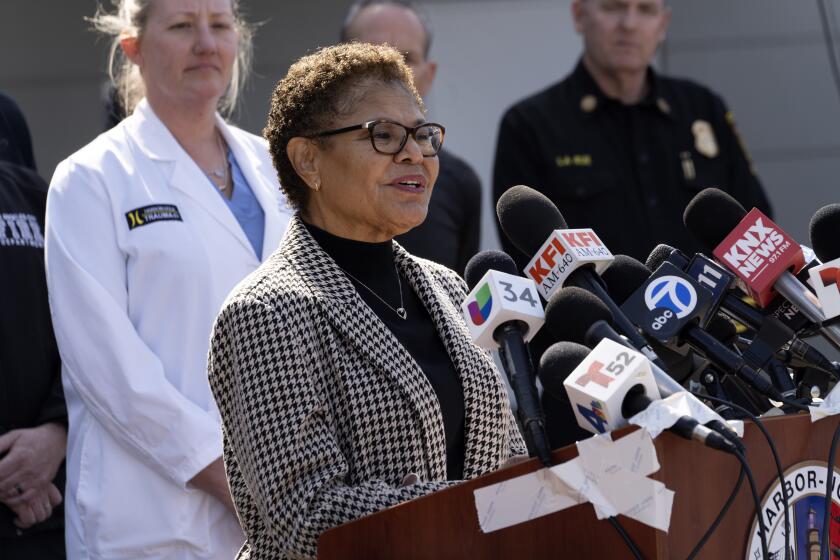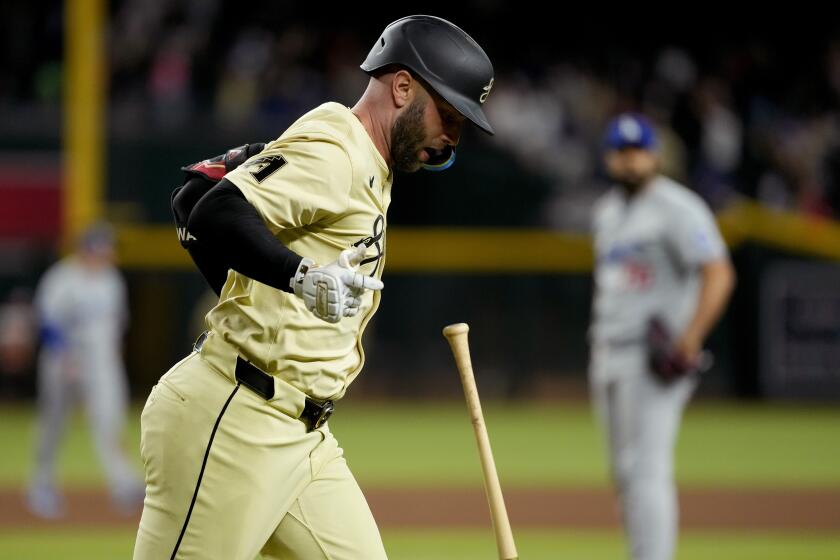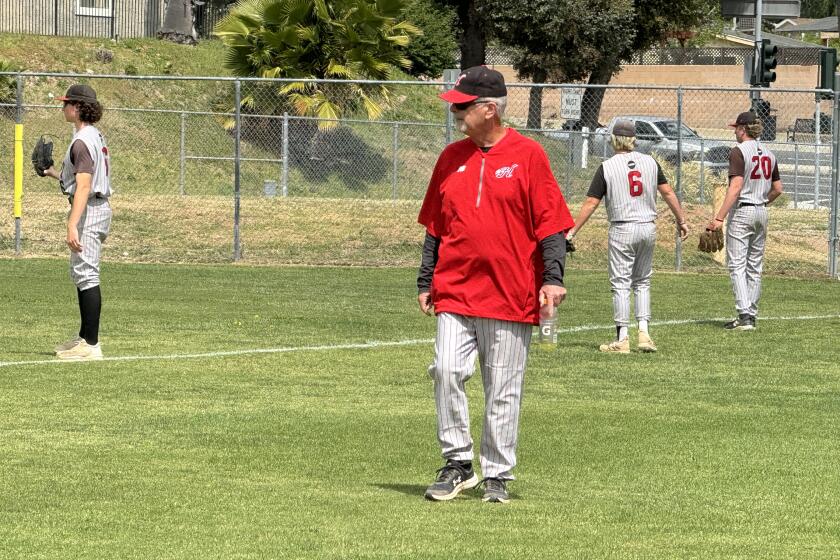The 30 biggest events of David Stern’s NBA tenure
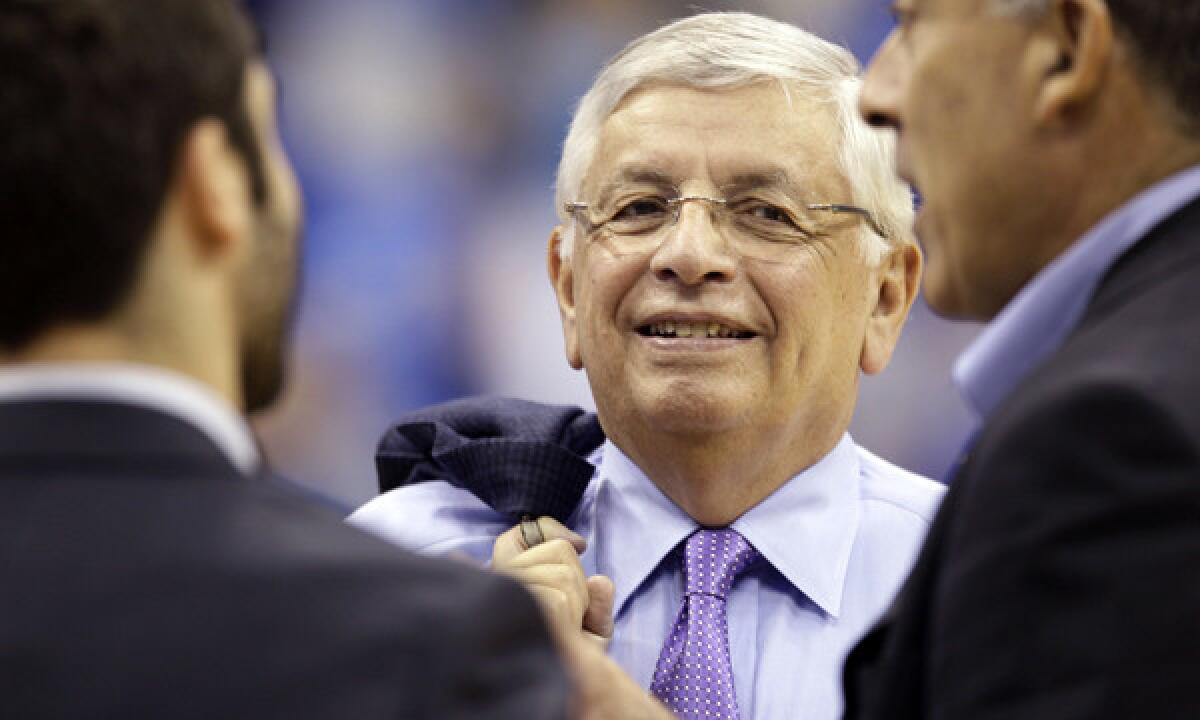
A look at 30 of the biggest events to unfold during David Stern’s 30-year run as NBA commissioner, which is scheduled to end Feb. 1:
June 1984—Michael Jordan, Hakeem Olajuwon, John Stockton and Charles Barkley are drafted, stocking the league with four future Hall of Fame players. The league also institutes a seven-team draft lottery, replacing the practice of flipping a silver dollar to determine the top pick between the two teams with the worst records.
October 1984—The Clippers open their first season in Los Angeles after having moved from San Diego.
October 1985—The Kings open their first season in Sacramento after having moved from Kansas City.
February 1986—New Jersey Nets guard Micheal Ray Richardson tests positive for cocaine and becomes the first active player to receive a lifetime ban under the league’s anti-drug policy. Eight more players would be banned over the next nine years.
June 1986—Len Bias, selected third in the draft by the Boston Celtics, dies from a cocaine overdose.
October 1986—The NBA’s board of governors tweaks the draft lottery so that it determines the order of selection for only the first three teams. The rest of the non-playoff teams pick in inverse order of their regular-season records.
November 1988—The expansion Miami Heat and Charlotte Hornets open their first seasons and the league adds a third referee in each game.
June 1989—The NBA draft is televised in prime time on national television for the first time. The league also reduces the draft to only two rounds, a format that remains in effect.
October 1989—The NBA’s board of governors adopts a weighted 11-team draft lottery, starting with the 1990 draft, in which the team that finishes with the worst record has the highest odds of obtaining the top pick.
November 1989—The expansion Minnesota Timberwolves and Orlando Magic open their first seasons.
October 1995—The board of governors increases the number of teams participating in the draft lottery from 11 to 13 to account for expansion teams Toronto and Vancouver, who open their first seasons.
October 1997—Violet Palmer and Dee Kantner become the first female referees in any major U.S. professional sport.
December 1997—The league suspends Golden State’s Latrell Sprewell for one year after he chokes Coach P.J. Carlesimo during a practice.
July 1998—The NBA locks out its players for nearly seven months until a new collective bargaining agreement is reached, resulting in a shortened 50-game 1998-99 season.
October 1999—Officials begin enforcing a ban on hand-checking and forearm-checking above the free-throw line, allowing some of the game’s top scorers to become even more prolific.
November 2001—The Grizzlies open their first season in Memphis after having moved from Vancouver.
January 2002—The NBA fines Dallas Mavericks owner Mark Cuban $500,000 for saying he wouldn’t hire then-league head of officiating Ed Rush to run a Dairy Queen. Cuban has amassed more than $1.9 million in fines during his 14 years of ownership.
July 2002—The league agrees to use instant replay to determine whether shots at the end of quarters and overtimes should count and whether fouls had been called before time expired.
October 2002—The Hornets open their first season in New Orleans after having moved from Charlotte.
May 2004—The draft lottery swells to 14 teams—its current number—to account for the expansion Charlotte Bobcats.
November 2004—The league suspends nine players a combined 146 games for a brawl between fans and players during a game between the Indiana Pacers and Detroit Pistons at the Palace of Auburn Hills. Indiana’s Ron Artest is suspended for the rest of the season.
June 2005—As part of its new collective bargaining agreement, the league stipulates that players cannot be drafted until a year after their high school class graduates and must be 19 years old, creating a new breed of so-called one-and-done college players.
October 2005—Stern announces the implementation of a dress code for players, forcing them to wear business or conservative attire to and from arenas and while representing their teams.
December 2006—Stern acknowledges the introduction of a new microfiber composite ball two months earlier was a mistake and says teams will go back to using the traditional leather ball on Jan. 1.
August 2007—Former NBA referee Tim Donaghy pleads guilty to two federal charges related to allegations that he bet on games he officiated the previous two seasons. He is sentenced to 15 months in federal prison.
October 2008—The Thunder opens its first season in Oklahoma City, having previously played in Seattle as the SuperSonics.
January 2010—The league suspends the Washington Wizards’ Gilbert Arenas and Javaris Crittenton for the rest of the season for bringing guns into the locker room after Arenas makes light of the situation by pretending to shoot his teammates during player introductions before a game.
July 2011—The league locks out its players for the next five months until a new collective bargaining agreement is reached, resulting in a compacted 66-game schedule for the 2011-12 season.
December 2011—Acting as de facto owner of the league-controlled New Orleans Hornets, Stern vetoes a trade that would have sent star point guard Chris Paul to the Lakers while sending Pau Gasol to the Houston Rockets and Lamar Odom to the Hornets.
November 2012—The Nets open their first season in Brooklyn after having moved from New Jersey.
More to Read
Get our high school sports newsletter
Prep Rally is devoted to the SoCal high school sports experience, bringing you scores, stories and a behind-the-scenes look at what makes prep sports so popular.
You may occasionally receive promotional content from the Los Angeles Times.
